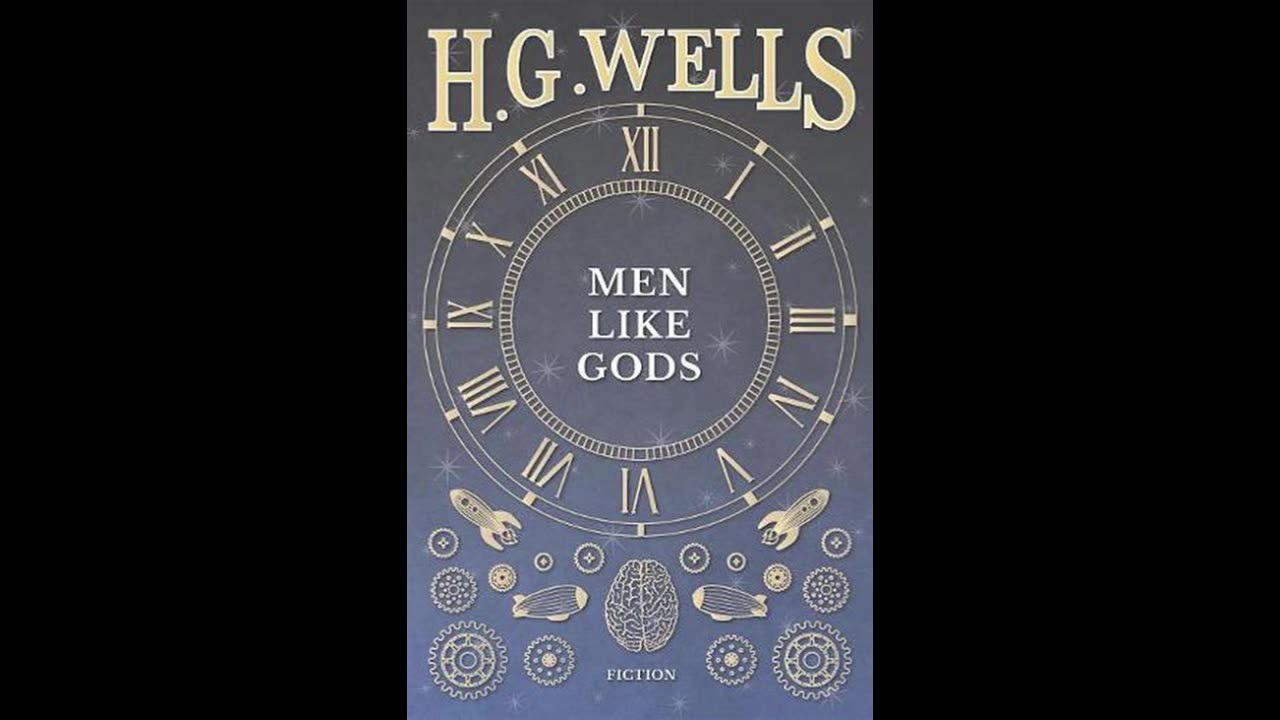Premium Only Content

Men Like Gods by H. G. Wells (1923)
This book is a bold and imaginative work of utopian science fiction that blends political philosophy with speculative adventure. The novel follows Mr. Barnstaple, a disillusioned English journalist, who—along with a group of strangers—is accidentally transported to Utopia, a parallel world where humanity has evolved beyond war, poverty, and government coercion.
In Utopia, there is no need for laws or leaders. Science, reason, and personal freedom reign. The inhabitants—“men like gods”—live by the “Five Principles of Liberty,” and their society reflects what Wells believed humanity could achieve if it shed superstition, authoritarianism, and backward social structures.
As the visitors from Earth attempt to make sense of this advanced world, their own flaws and attachments to outdated systems become painfully clear. What begins as a curious exploration becomes a mirror held up to 20th-century civilization—its ignorance, violence, and resistance to progress.
Men Like Gods serves as both a utopian vision and a sharp critique of contemporary politics, religion, and human nature. It’s an early exploration of parallel universe theory, and it allowed Wells to push his views on liberal socialism, secular humanism, and scientific progress, making it a philosophical novel as much as a sci-fi tale. It also lightly satirizes organized religion and totalitarian ideologies—foreshadowing the tensions of the coming decades.
About the Author:
H.G. Wells (Herbert George Wells, 1866-1946) was an English writer, historian, and social commentator, widely regarded as one of the most influential authors of the early 20th century. Best known for his pioneering works of science fiction, such as The War of the Worlds, The Time Machine, and The Invisible Man, Wells also wrote extensively on social, political, and philosophical topics.
Wells was a committed advocate for social reform and was deeply involved in the intellectual and political debates of his time. He was a member of the Fabian Society, a British socialist organization that aimed to advance the principles of democratic socialism through gradual reforms rather than revolution. His interest in social issues and his belief in the power of science and education to improve society are reflected in many of his works, including The Open Conspiracy.
Wells was a member of the Fabian Society, a British socialist organization advocating for gradual, democratic reforms rather than revolutionary change. He engaged in political debates and was known for his radical views on social reform, class inequality, and the future of human society. Although he supported socialism, he was often critical of political parties and institutions, which he felt were too slow or corrupt to bring about real change.
Wells’ personal life was often as controversial as his writings. He had multiple affairs, including one with feminist and author Amber Reeves, which heavily influenced The New Machiavelli. The affair strained his relationship with the Fabians, and this personal experience is mirrored in the novel’s exploration of sexual morality, personal ambition, and political pragmatism.
H.G. Wells is widely regarded as one of the founding fathers of science fiction, but his contributions to literature extend far beyond that genre. His explorations of political, social, and philosophical issues influenced not only his contemporaries but also future generations of writers and thinkers. His predictions about future technologies, warfare, and society were often uncannily accurate.
Wells was deeply influenced by Charles Darwin’s theory of evolution, which shaped his views on human nature, society, and progress. His writing style combined a fascination with science and the possibilities of the future with a deep skepticism of human nature and institutions. His works often reflect his belief that human progress requires a balance between scientific advancement and ethical responsibility.
-
 1:48:13
1:48:13
Deus Meum Que Jus
21 days agoSecrets of Living an Income Tax Free Life Part 2
451 -
 2:25:11
2:25:11
TheSaltyCracker
2 hours agoTrump Is Not Dead ReEEeStream 8-31-25
30.3K74 -
 LIVE
LIVE
HELMETFIRE
1 hour ago🟢GAMING WITH FIRE EP9🟢
40 watching -
 1:24:08
1:24:08
Jean-Claude@BeyondMystic
12 hours ago🌀 THE WACKY WOO SHOW 3I ATLAS ALIEN INVASION with DICK ALLGIRE & JC - AUG 31 , 20254
21.2K42 -
 2:26:21
2:26:21
vivafrei
12 hours agoEp. 279: Patel's GF Sues for Defamation! Rogue Judges vs. Trump! Raja Jackson, Kick Stream & MORE!
124K65 -
 18:52
18:52
Colion Noir
9 hours agoCourt Rules You Don't Need AR-15s For Self Defense, Mayor's Message If You Love Kids Ban AR-15s
19.3K52 -
 1:56:25
1:56:25
Nerdrotic
5 hours ago $6.66 earnedThe Mysteries of Mars and the Moon with Mike Bara | Forbidden Frontier #114
20.7K7 -
 1:11:31
1:11:31
The Mel K Show
3 hours agoMel K & Chas Holloway | An Opposing Theory: The AI & Tyranny Question | 8-31-25
18K4 -
 LIVE
LIVE
IsaiahLCarter
2 days ago $0.57 earnedGrandmasters and Heretics || APOSTATE RADIO #027
59 watching -
 3:03:40
3:03:40
Barry Cunningham
8 hours agoPRESIDENT TRUMP IS THE TROLLER-IN-CHIEF AND MORE BREAKING NEWS!
40.7K36